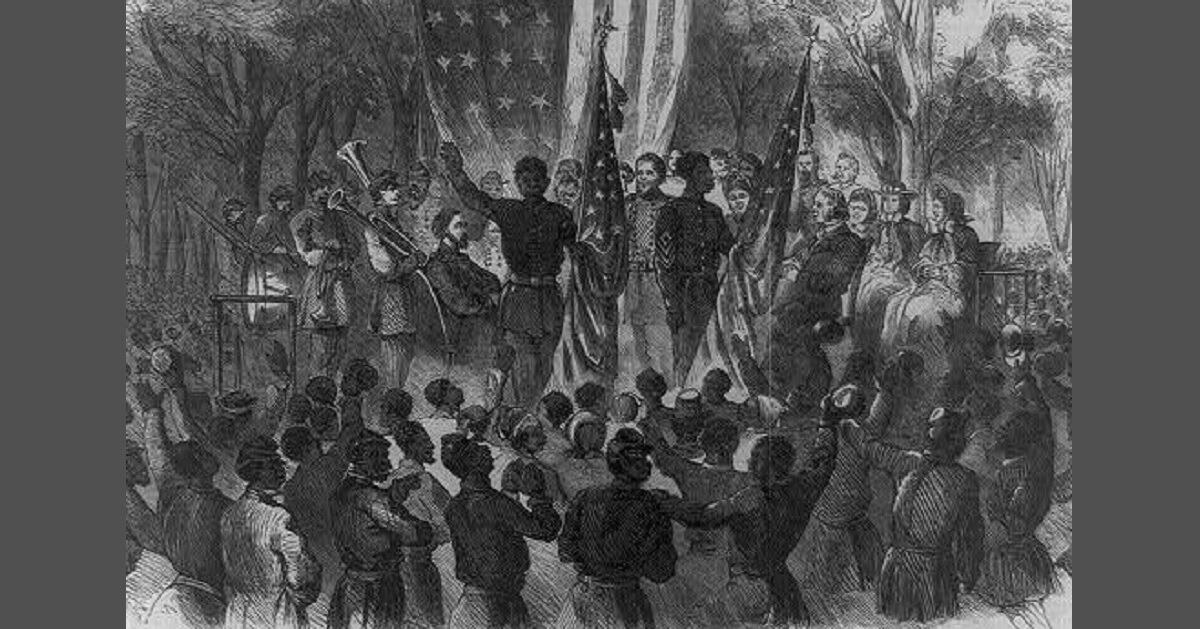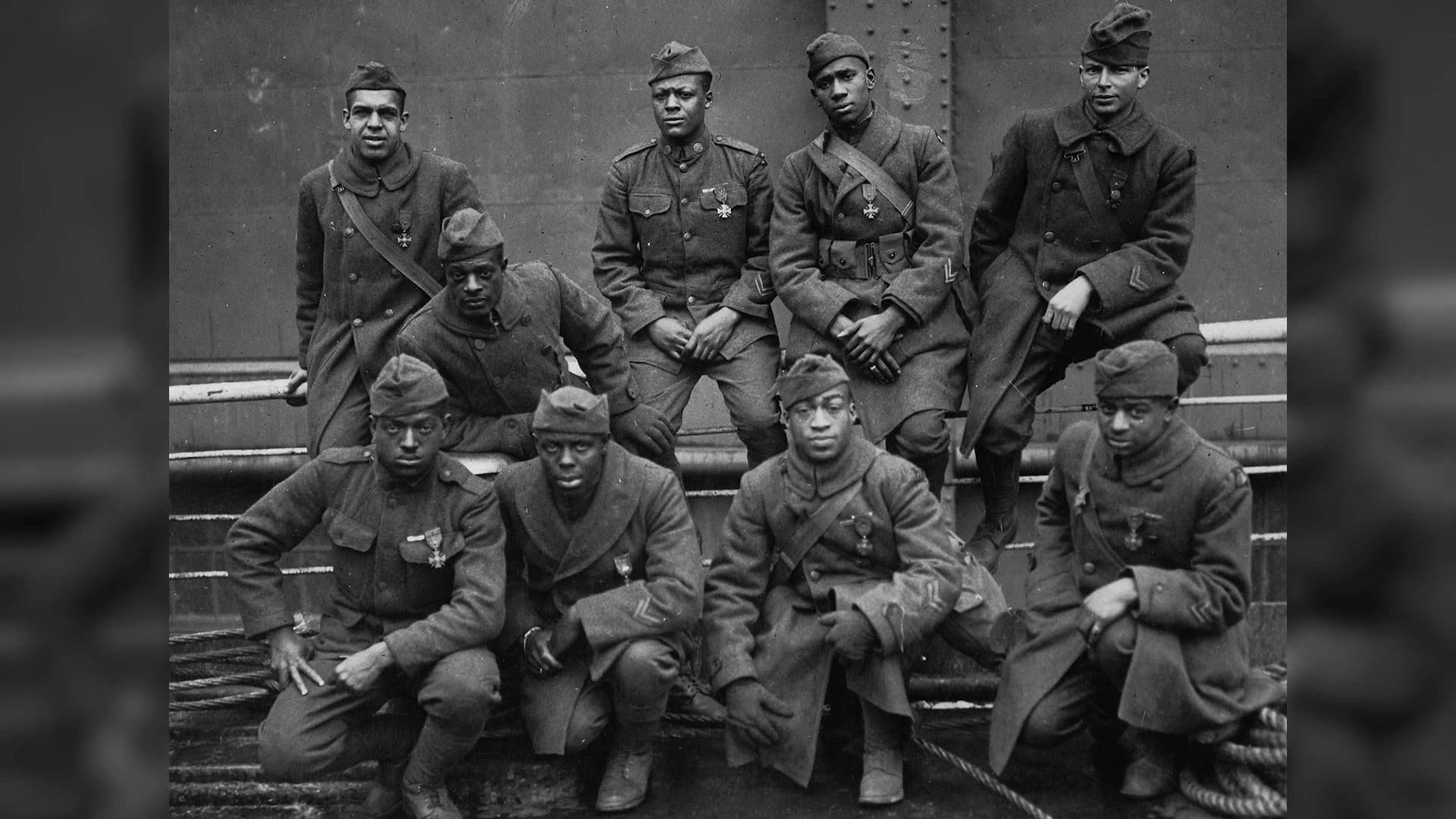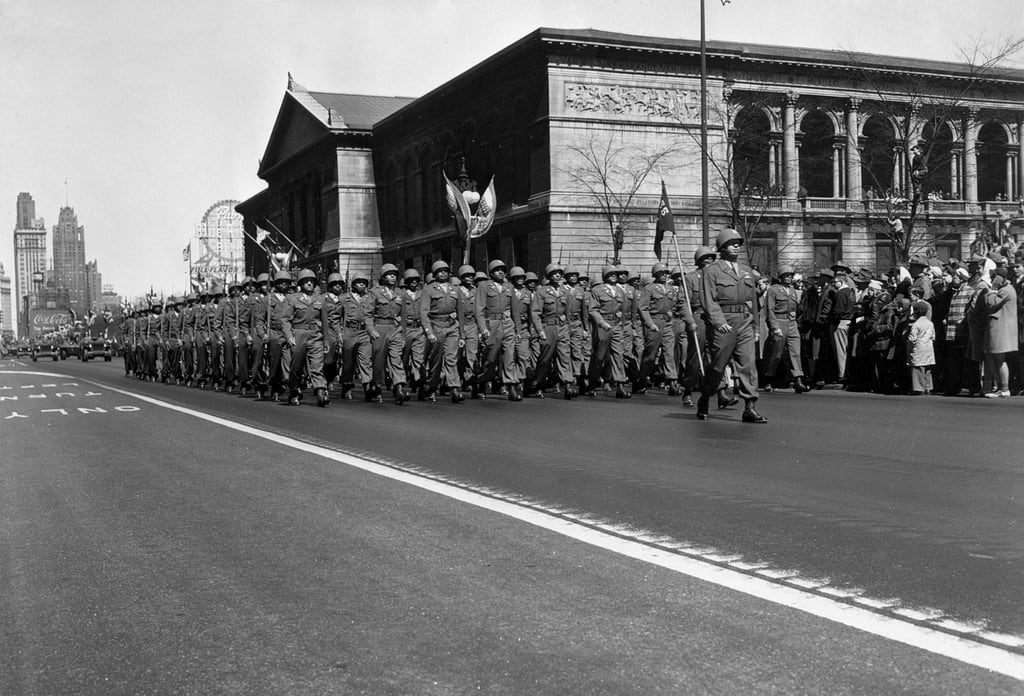Black History Month provides the opportunity to reflect on events of national prominence and create a connection to our current context.
The year 1973 marked the end of the draft Army and the transition to the All-Volunteer Force for the U.S. military. This year is both the 50th anniversary of the volunteer force and the 75th anniversary of the presidential directive to desegregate the military.
In 1948, President Harry Truman issued Executive Order 9981 declaring “there shall be equality of treatment and opportunity for all persons in the armed services without regard to race, color, religion, or national origin.”
In the summer of 1972, three Black Army officers—Col. Chris Stevens, Col. Porcher Taylor Jr., and Lt. Col. Jerry Curry—entered the U.S. Army War College. Career officers, each man joined the military during or following World War II. In the segregated military, they experienced the growing pains of integration of Army units. These officers would have been cognizant of the struggles during the American civil rights movement as Black civilians pressed for full rights of citizenship. Each student had enlisted, received a commission and climbed the ranks through assignments, promotions and commands.
RELATED

In their careers, progress toward equal treatment and opportunity was demonstrated by their selection for command and attendance at professional military education programs of the U.S. Command and General Staff College and the war college. Active-duty Army Lt. Col. Frederic Davison and New York Army National Guard Lt. Col. Otto van Exel became the first Black graduates of the prestigious war college in 1963. A quarter-century after the executive order that led to the desegregation of the military, the war college Resident Class of 1973 counted three leaders of color in its ranks of 228 students.

Stevens enlisted in the Army in 1945. After World War II, he graduated from Hampton Institute, a Historically Black College and University, and was commissioned as a quartermaster officer. A year-long assignment as a procurement officer for the U.S. Element of the Military Assistance and Advisory Group in Laos was followed by two tours in Vietnam that included command of the 64th Quartermaster Battalion (Petroleum) and then service as deputy commander of the 29th General Support Group. Stevens’s assignment prior to attending the war college was as commander of the United States Army Support Center in Philadelphia, Pennsylvania.
Taylor, Jr. took a slightly different path with enlisted service in the U.S. Navy in the Pacific during WWII. Upon returning home, he studied at the Tuskegee Institute, was commissioned as an Army infantry lieutenant, and was then called to active duty in 1951 during the Korean War. He had assorted postings as an infantry and staff officer, which included assistant professor of military science at Virginia State University, a historically Black university, as well as two tours in Vietnam. While stateside, he commanded a battalion in the U.S. Army Training Center at Fort Jackson, South Carolina and then served as the training center’s deputy chief of staff for personnel. Prior to attending the war college, Taylor commanded I Corps Special Troops Headquarters in Korea and completed a doctoral program in Counselor Education.
Curry enlisted in the Army during the Korean War. He was commissioned as an infantry officer through Officer Candidate School. Curry later became an aviator, serving initial tours of duty in the United States and then overseas in Germany, Korea, and Vietnam. After assorted infantry and aviation assignments, Curry commanded the 2nd Battalion, 30th Infantry in Germany and then served another Vietnam tour as regimental senior advisor for a Vietnamese unit. Prior to attending the war college, Curry was assigned to the Army staff at the Pentagon as an operations research analyst.
Through it all, these three officers persevered as patriots in service to the nation, demonstrating and further developing their talents in the profession of arms. Through their own merit, they prospered and performed well in key assignments. With their war college graduation in June 1973, Curry, Stevens, and Taylor would lead the All-Volunteer Force in warfighting formations and in institutional organizations. Accordingly, they would prove integral in creating the Army of the future in the wake of a strategic failure in Vietnam and diminished trust of the military within American society.
Stevens, as a colonel, commanded the 13th Corps Support Group at Fort Hood, Texas, then completed his uniformed service as commander of the Defense Industrial Supply Center in Philadelphia. In 2005, Stevens was inducted into the U.S. Army Quartermaster Hall of Fame.
Taylor completed his war college assignment as the director of the Inventory and Assessment Branch of the Directorate of Academic Affairs. His final assignment was as the commander and school commandant of the U.S. Army Organizational Effectiveness Training Center at Fort Ord, California. In 1998, Taylor was inducted into the Virginia State University Reserve Officers’ Training Corps Hall of Fame.

Curry was promoted to major general during his 34-year career which included command of 3rd Brigade 8th Infantry Division; Chief of Staff, V Corps in Germany; and assistant commanding general of 4th Infantry Division. He also served in key Pentagon assignments such as military deputy assistant secretary of defense and then acting press secretary for the secretary of defense. His final command was of the U.S. Army Test and Evaluation Command at Aberdeen Proving Grounds, Maryland. He was inducted into the Officer Candidate School Hall of Fame in 1979.
The legacy of these three Army officers is well-earned and should be remembered during this Black History Month 2023. Fifty years after their war college graduation, we can see the institutional progress made toward diversity, equity, and inclusion for the U.S. military. That progress was not easily gained, and thus must never be taken for granted.
Colonel (retired) Charles D. Allen culminated a 30-year Army career as Director, Leader Development and is the Professor of Leadership and Cultural Studies in the Department of Command, Leadership, and Management at the United States Army War College, Carlisle Barracks, Pennsylvania.
Have an opinion?
This article is an Op-Ed and as such, the opinions expressed are those of the author. If you would like to respond or have an editorial of your own you would care to submit, please email us.
Want more perspectives like this sent straight to you? Subscribe to receive our Commentary & Opinion newsletter once a week.









